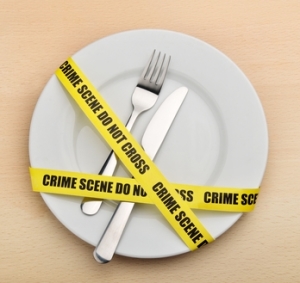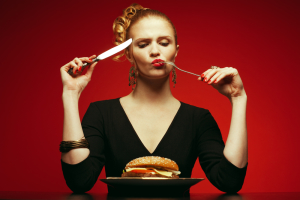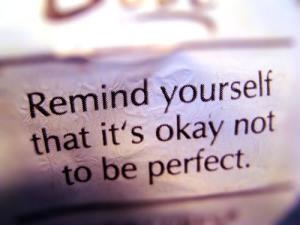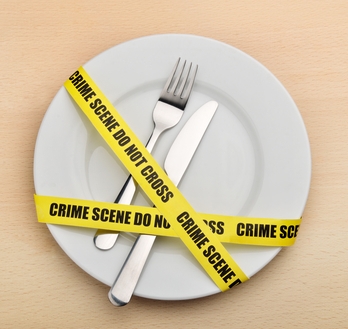 What is the food police?
What is the food police?
It is that inner voice that tells you you can’t have certain foods, should be following particular dieting rules, and have to pay time in the prison of guilt for not eating the “right” thing. Almost all of us have a food police voice in our heads. It comes from all the information that we get over the years and adopt as law for how we eat. Starting at a young age you might have had rules in your house that you had to clean your plate or that certain foods were bad for you. Then in high school and college, you might read fitness magazines listing off all of these ways to get quick results for a flat stomach, including a 1,000 calorie/day diet and a new lemon juice or cabbage detox. As you get older, you might research all the diet tips like limiting carbohydrates, having no fat in your diet, and that you simply MUST eat NO sugar.
Have you ever realized that we often describe food in terms of morality? Foods are sinful, tempting, lustful, good, bad, evil, and the list goes on.
Having some dessert or eating pizza is not going to cause us to shoot straight to hell! However, the inverse may be true. Labeling food good or bad could have us focusing so much on food and allowing it to have power over us is what will feel like hell. So why do we go there? Why do we suffer for eating? Something that is natural, a need, and should be pleasurable?
Intuitive Eating discusses some mindsets that we should adopt to help us challenge the food police. To stand them down. Let’s take a look at them.
 1. The Nutritional Ally
1. The Nutritional Ally
There are many people who will claim to have rejected the dieting mentality, but still use eating healthy as a way to diet and “be good”. Without a doubt, nutrition is important. I am not denying that but you aren’t eating intuitively if you are struggling with your decisions on how you should eat because of restrictive dieting. Don’t you think it is possible for you to adapt a healthier diet and still be able to make a decision to have a cookie with out feeling guilty for it. I love eating healthier not because I have to but because my body feels better when I do. But there are also pizza nights and mom’s apple pie moments. and then I go back to my regular eating pattern. Without a doubt, foods like the above that I mentioned are not every day foods. But not ever allowing yourself to have something you enjoy because it isn’t the healthiest option out there is still living under the food police.
Choosing healthy items with no other agenda (such as eating a big bowl of veggies because you enjoy them instead of because they are good for losing weight) is the key. You have to continue to honor your hunger and eat enough of the healthy items, but not be afraid to have a lower nutritional value item if you truly want it.
 2. Be a food anthropologist, which simply means be observant of your eating habits.
2. Be a food anthropologist, which simply means be observant of your eating habits.
After you eat consider all the facts. Don’t put judgments or labels. List out what you ate, like you would in a food journal but it is simply stating facts, not saying you did “good” or “bad”. List out how you felt before, during, and afterwards. I mentioned before that I eat healthier foods because it makes my body feel good. That is because I finally figured out that eating lower nutritional foods only tasted good for a moment but then afterwards I would feel sluggish, moody and my stomach would be upset. They did not make me feel like me. When I switched to less processed foods, I discovered more energy, a better more even moods, better sleep and concentration and a more positive attitude. That was a big difference. But I did not discover it until I made the connection to the food I was eating all the time to how it made me feel. I became a intuitive eater because I was able to discover what my body needed and really wanted. I also discovered it was what I really wanted. I mostly ate foods before out of convenience, it was there, it was fast so I ate it. Now I have to do more planning and preparing but really it is just a little more work then before. And I am much happier now.
 3. Be a food nurturer.
3. Be a food nurturer.
This can be summed up in a nutshell. Consider your feelings and your emotions. You deserve respect. Allow yourself forgiveness if you ever feel guilty related to your eating habits. Take the time to find out what helps your body and YOU to really feel good, not just be good. Nurture yourself and build yourself up. Food should be an enjoyable experience not a means of punishment.


